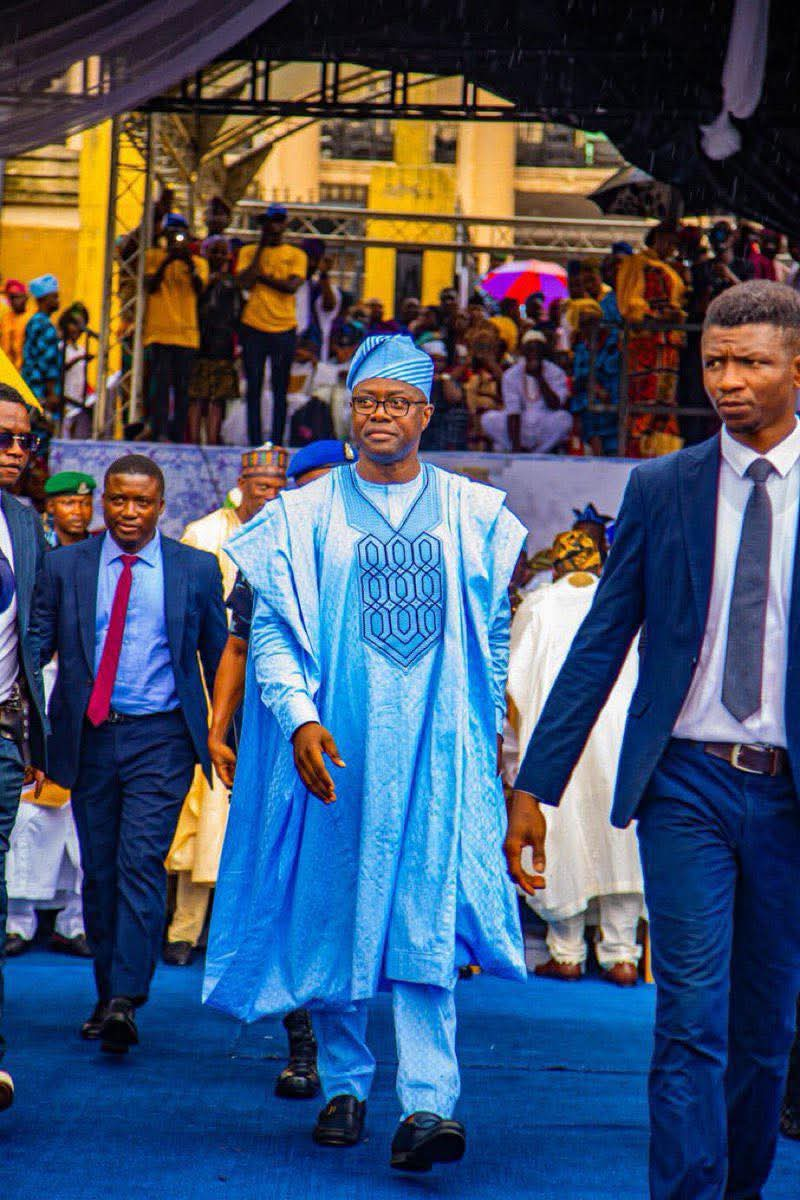
Nigeria’s rental market is spiralling, with two-bedroom apartments averaging N2.5m annually, far above rates of just a few years ago. From N250,000 flats in Benin to N20m luxury units in Lagos, tenants nationwide face surging rents that are deepening an affordability crisis and squeezing millions of households, writes JOSEPHINE OGUNDEJI
The Nigerian housing market is facing one of its toughest periods in recent history, as the median rent for a two-bedroom apartment in many parts of the country has climbed to about N2.5m annually, according to findings by The PUNCH.
This figure represents a sharp rise compared to what was obtainable a few years ago and highlights the deepening affordability crisis confronting millions of Nigerians. From Lagos to Kano and Ibadan to Port Harcourt, tenants are feeling the squeeze of rapidly escalating rents.
While N2.5m serves as a national benchmark, the reality is that rents vary wildly across cities and neighbourhoods ranging from as low as N250,000 in some inner parts of Benin City to as high as N20m in Lagos’s luxury districts, according to data gathered from industry players in these various locations.
Why two-bedroom flats
The focus on two-bedroom apartments is deliberate. Across Nigeria, this category of housing is often considered the “middle ground” for families, young professionals, and middle-income earners. A single-bedroom apartment is typically viewed as temporary or transitional housing, while three- and four-bedroom units are often priced far beyond the reach of average tenants.
For many Nigerians, a two-bedroom flat represents a balance between affordability and comfort. Yet, with prices surging, even this once-modest option is increasingly out of reach.
A resident of Jos, Plateau State, Gloria Oyogho, explained how rent is shaped by finishing and infrastructure. “In standard areas with good finishing, water supply, and stable electricity, rents range between N1.5m and N2.5m. But in less standard areas, prices are much lower, around N500,000 to N800,000,” she told The PUNCH.
She added that hidden costs further inflate expenditure: agency fees, legal charges, and sometimes compulsory renovation levies. “I once saw a flat for N500,000, but it lacked running water, and residents depended on a well,” she said, underlining how amenities directly impact value.
In Abuja, the country’s capital, rent disparities are glaring. Legal practitioner Adedapo Adewuyi described the property market as a spectrum, from relatively affordable outskirts to premium neighbourhoods catering to the wealthy and political elite.
In Karu, Maraba, and Kubwa, rents for two-bedroom flats range between N1.5m and N2.5m. In Wuse 2, Jahi, and Jabi, the cost climbs to around N3m. In Maitama and Asokoro, two-bedroom units cost up to N10m annually, reflecting prestige and exclusivity.
“These high-end districts are magnets for executives, diplomats, and top government officials,” Adewuyi explained. “Location remains the single most important factor in Abuja’s property market.”
The imbalance has led to rising tenant frustrations. One lawyer in a social forum questioned whether it was legal for a landlord to raise a tenant’s rent from N1.5m to N2.8m just months before renewal. Such abrupt hikes are increasingly common.
Ibadan, traditionally considered an affordable city, is fast losing that reputation. Data analyst Oladayo Isaac recounted how his rent journey reflected the city’s transformation.
“In 2022, two-bedroom flats cost between N300,000 and N500,000. I rented mine for N350,000. Today, average rents are N800,000 to N1.5m. Landlords are even introducing service charges, something unheard of in Ibadan until now,” he said.
He also narrated how inspections have turned into bidding wars. “We were about 50 people at one viewing. The landlord raised the price on the spot because of demand. Another apartment I considered rose from N1m to N1.1m in a week.” Isaac lamented that Ibadan landlords are “copying Lagos models”, with arbitrary rent hikes and extra service charges.
In Ogun State, proximity to Lagos is a key driver. Architect Seyi Amusan explained that in Opic, two-bedroom flats cost between N2m and N2.5m annually. “The demand comes from workers who cannot afford Lagos rents but still want to be close to the city,” he said. Yet prices are far from uniform. Rural districts in Ogun remain relatively affordable, though infrastructure gaps often make them less desirable.
Enugu also mirrors the nationwide pattern of disparities. Agent John Kalu said two-bedroom flats in Emene and Abakpa go for N800,000–N4m, while prime areas like New Haven and Independence Layout cost N2.5m and above. “Tenants must also add legal and agent fees, which can increase total costs by 10 – 15 per cent,” Kalu noted.
Lagos stands out as the most expensive and unpredictable rental market in Nigeria. The spread is dramatic: Ikorodu, N1.5m N2m; Ketu and Alapere, N2.5m upwards; Gbagada and Shomolu, N2.5m – N3.4m; Ikeja, N4.5m – N6m; Magodo, N4m; and Ikoyi and Victoria Island, N8m – N20m.
One tenant along the Alapere/Ogudu Expressway said his rent jumped from N400,000 to N1.2m in a single review. Such steep hikes, often without justification, reflect the cutthroat competition for housing in Lagos.
In Uyo, estate agent Mint Ebuk reported average rents of N650,000 – N5m. In Benin-City, agent David Asobur noted extremes: N250,000 for poorly serviced inner neighbourhoods and up to N2.5m for well-serviced areas. In Calabar, resident Impress Nkechi said prime districts like Parliamentary Extension rarely go below N1.5m, while the outskirts still offer flats for N700,000.
Kano’s housing reflects its socio-economic diversity. Agent Amin Ya Rabbi explained that in Nasarawa GRA, the cost of rent is from N5m and above; Zoo Road, Otoro, N2m N2.5m; and Badawa, Sabangari, N800,000 N1.5m. “These differences reflect not just income levels but also cultural preferences and accessibility,” he said.
In Port Harcourt, two-bedroom flats cost between N600,000 and N4m depending on location. GRA stands at the top, with apartments rarely below N3.5m. The city’s average N2.5m mirrors the national median.
Institutions react
The Assistant National Publicity Secretary of the Nigerian Institution of Estate Surveyors and Valuers, Ayodele Olamoju, noted that rents in Nigeria have skyrocketed in a way that feels almost unbearable for many, especially those living in big cities.
He said, “What we’re facing is not just a random occurrence; it’s really the outcome of demand and supply struggling against each other, shaped by economic, social, and political forces. The housing market is under immense pressure, and without enough affordable options being delivered, the sharp rent increases keep hitting ordinary people hard. Take, for example, the average two-bedroom apartment that now goes for around N2.5m in major cities in the country. That figure alone tells the story of how far things have escalated. The surge is not because landlords simply want to exploit tenants; it’s because costs across the board have risen drastically. Inflation has eaten deep into every part of the housing value chain. From cement to steel, tiles, fittings, and even labour, prices have doubled or tripled within a short time, and naturally, developers and landlords are passing on these costs to tenants.
“Another major factor is our currency instability. The depreciation of the naira and the persistent foreign exchange shortages mean that anything imported for construction immediately becomes more expensive. Whether it’s finishing materials, fixtures, or even machinery, the exchange rate problem makes it harder to build at a reasonable cost. This has worsened construction inflation, and by extension, made rents climb faster than wages can catch up.
“All these issues combined show that the rent crisis is not a simple problem; it is structural. It exposes gaps in housing policy, weak supply systems, and the economic realities that every Nigerian is grappling with. Until there’s a deliberate effort to address both the economic pressures and the policy failures that feed into the demand-supply imbalance, rents will keep rising, and tenants will continue to struggle.”
An estate surveyor, Olorunyomi Alatise, noted that rental prices in Nigeria, particularly in Lagos where the pressure is most acute, have spiralled uncontrollably in recent years, driven by both structural deficiencies and economic realities.
He said, “The chronic housing deficit in Kano, for instance, has created a persistent imbalance between supply and demand. On the other hand, inflation, currency volatility, and escalating construction costs have left landlords with little choice but to push rents upward, often indiscriminately. This dual force of scarcity and cost-push inflation has made shelter an increasingly elusive basic need for many.
“The troubling irony, however, is that these rent reviews rarely align with tenants’ earning capacity. Salaries are either stagnant or, where increased, fail to match the pace of inflation, leaving households vulnerable. The gap between rent obligations and income growth has widened so sharply that affordability has become a pressing crisis. For a significant portion of the population, rent now consumes a disproportionate share of monthly earnings, leaving little for other essentials and pushing many towards overcrowded, inadequate housing or outright displacement.
Addressing this pervasive challenge requires a deliberate, multi-pronged response.
Affordable “housing delivery must be prioritised through mass housing schemes supported by government and private developers. Policy innovations such as incentivising longer, stable leases, regulating the spread of short-term rentals, and publishing a transparent rent index for both rents and property sales would bring sanity and predictability to the market. Additionally, construction costs can be reduced by encouraging the use of local building materials and granting tariff relief on essential inputs. Without such systemic interventions, the housing affordability gap will continue to widen, deepening social and economic inequalities.”
Meanwhile, the president of the Association of Housing Corporations of Nigeria, Eno Obongha, noted that the reasons for the rent hike were not far-fetched.
He said, “When demand is higher than supply, prices must go up. The supply end is limited because building material prices are very high. Most of the imported materials are also affected by the dollar value. The processes for obtaining housing loans from development finance institutions are equally cumbersome.










